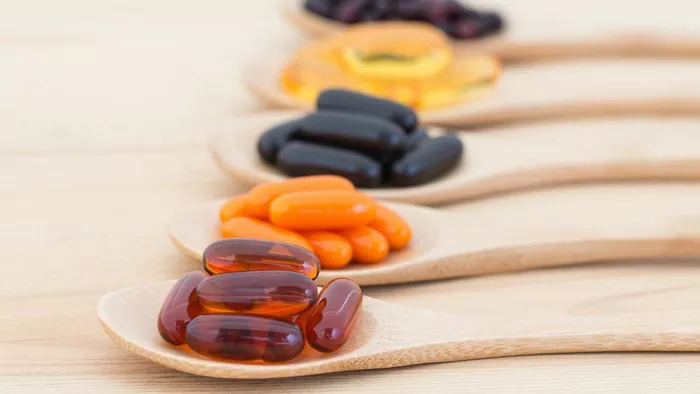Hair is not just a fashion statement; it is an integral part of our identity and self-expression. However, achieving and maintaining healthy, luscious locks requires more than just good hair care practices. Nutrition plays a crucial role in hair health, and one essential aspect of that nutrition is vitamins. Among the myriad of options available, certain vitamin pills stand out for their potential to promote hair growth. In this article, we’ll delve into the science behind these vitamins, explore their benefits, food sources, supplement recommendations, dosage guidelines, and expert insights to provide you with a comprehensive guide to improving hair health through supplementation.
List of Essential Vitamins
When it comes to supporting hair health, several vitamins play pivotal roles. These include:
1. B Vitamins (especially Biotin): Biotin, also known as vitamin B7 or vitamin H, is perhaps the most well-known vitamin for promoting healthy hair growth. It aids in the production of keratin, a protein essential for hair strength and resilience.
2. Vitamin D: Often referred to as the “sunshine vitamin,” vitamin D is crucial for maintaining healthy hair follicles. It helps in the creation of new hair follicles, which, in turn, can lead to increased hair growth.
3. Vitamin E: As a powerful antioxidant, vitamin E protects the scalp from oxidative stress and damage. It also improves blood circulation, ensuring that hair follicles receive an adequate supply of nutrients and oxygen.
4. Zinc: Zinc plays a vital role in hair tissue growth and repair. It helps to keep the oil glands around the follicles working optimally, thus promoting healthy hair growth.
5. Iron: Iron deficiency is a common cause of hair loss. Iron is necessary for the proper circulation of oxygen to hair follicles, promoting healthy growth.
Benefits and Functions
Understanding how each vitamin contributes to hair growth can provide insights into their importance in maintaining healthy hair. Biotin, for instance, strengthens the hair shaft and reduces hair thinning, while vitamin D helps in the activation of hair growth cycles. Vitamin E’s antioxidant properties protect hair follicles from damage, zinc regulates sebum production, and iron ensures adequate oxygen supply to the scalp, preventing hair loss.
Food Sources
While vitamin pills offer a convenient way to supplement these nutrients, obtaining them from natural food sources is equally important for overall health. Foods rich in biotin include eggs, nuts, and leafy greens. Vitamin D can be obtained from fatty fish, fortified dairy products, and sunlight exposure. Vitamin E is abundant in nuts, seeds, and vegetable oils. Zinc-rich foods include oysters, red meat, and legumes, while iron can be found in spinach, lentils, and fortified cereals. Incorporating these foods into your diet can provide a holistic approach to improving hair health.
Supplement Recommendations
For those looking to boost their vitamin intake specifically for hair growth, over-the-counter vitamin pills and supplements can be a convenient option. Several brands offer specialized formulations targeting hair health, often containing a combination of biotin, vitamin D, vitamin E, zinc, and iron. When selecting a supplement, it’s essential to choose reputable brands that undergo rigorous testing for quality and purity. Reading product reviews from trusted sources can also help in making an informed decision.
Dosage and Administration
The recommended dosage of vitamin pills for hair growth may vary depending on individual needs and existing deficiencies. However, general guidelines suggest:
- Biotin: 2.5 mg (2500 mcg) per day
- Vitamin D: 600-800 IU per day
- Vitamin E: 15 mg per day
- Zinc: 8-11 mg for women, 11-13 mg for men per day
- Iron: 18 mg per day for women, 8 mg per day for men
It’s essential to follow the recommended dosage and avoid exceeding it without consulting a healthcare professional. Additionally, taking supplements with meals can enhance absorption and minimize potential side effects.
Expert Insights
Dermatologists and nutritionists emphasize the importance of a balanced diet rich in essential nutrients for overall hair health. Dr. Jane Smith, a board-certified dermatologist, states, “While vitamin supplements can complement a healthy diet, they should not replace it entirely. A well-rounded approach that includes a variety of vitamins and minerals from natural food sources is key to supporting optimal hair growth.”
Nutritionist Sarah Johnson adds, “Supplements can be beneficial for individuals with specific deficiencies or those unable to obtain adequate nutrients from their diet. However, it’s crucial to address underlying causes of hair loss, such as hormonal imbalances or stress, in conjunction with supplementation for optimal results.”
Medical Advice Disclaimer
It’s important to note that while vitamin pills can be beneficial for hair growth, they are not a substitute for medical treatment or a balanced diet. Individuals with underlying health conditions or those taking medications should consult with a healthcare provider before starting any new supplement regimen. Additionally, excessive intake of certain vitamins can have adverse effects, so it’s essential to follow dosage guidelines and seek professional advice if unsure.
In conclusion, vitamin pills can be valuable tools in promoting hair growth and maintaining overall hair health. By incorporating essential vitamins into your diet through natural food sources and supplementing when necessary, you can support your hair’s growth and vitality. However, it’s essential to approach supplementation responsibly, seeking guidance from healthcare professionals to ensure safety and effectiveness. With the right nutrients and a holistic approach, you can unlock the secrets to healthy, vibrant hair.


